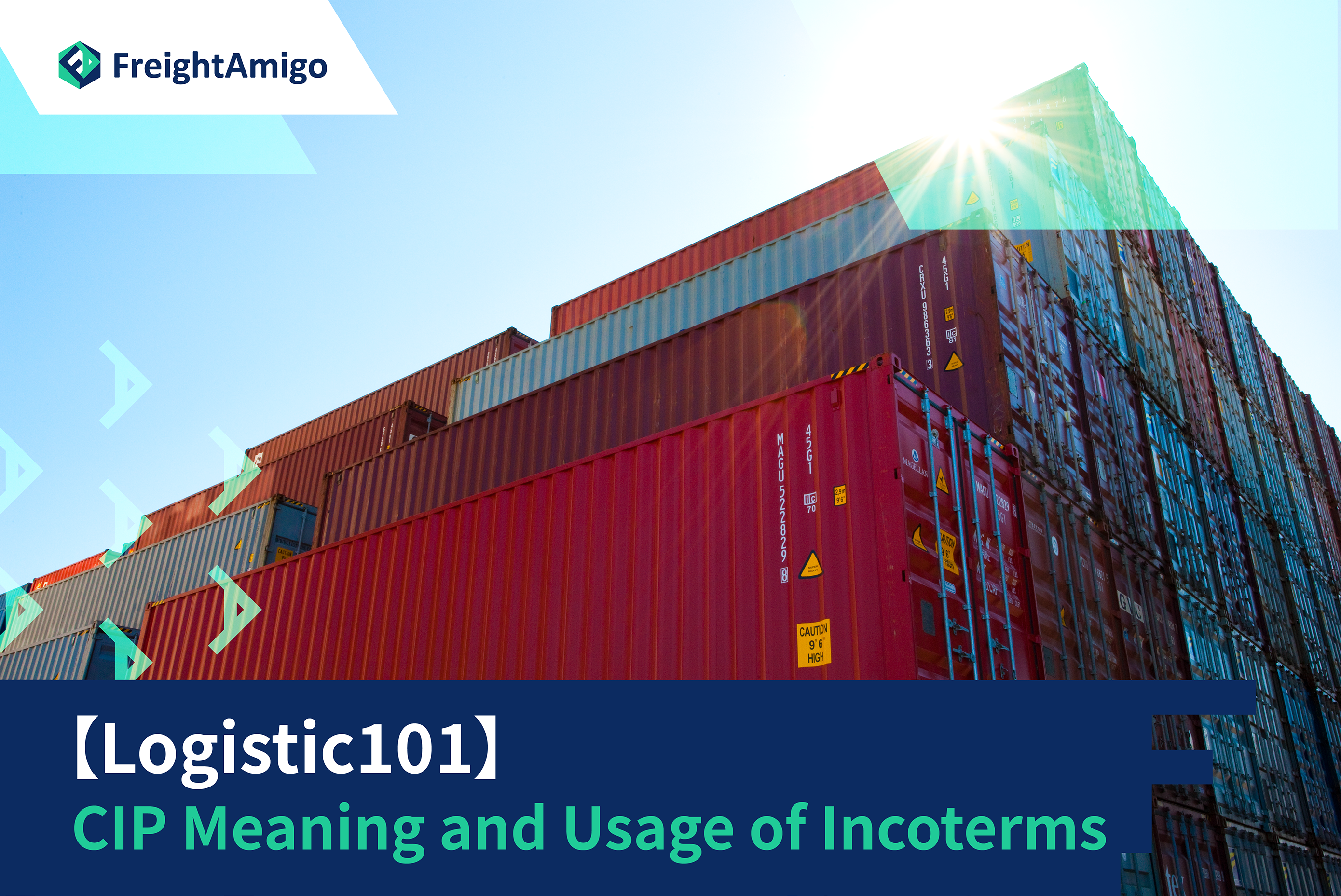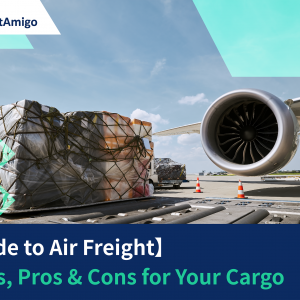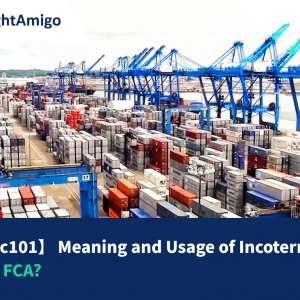Author Name: Tiffany Lee – Marketing Analyst at FreightAmigo
Carriage and Insurance Paid To (CIP) is an international trade term used to indicate the seller’s responsibility for transporting goods to a specific destination, including transportation costs and ensuring that the goods are not damaged or lost during transportation. CIP is commonly used in international trade contracts to specify shipping terms and conditions, including the responsibilities and obligations of the parties involved. The CIP term provides a certain level of protection and assurance for both the buyer and seller, ensuring that the goods are safely and reliably delivered to the specified destination.
Looking to compare international express delivery, air freight, sea freight, railway freight, and truck logistics management solutions in real-time to control transportation costs?
What is CIP ?
-In transportation, CIP refers to the seller’s responsibility for delivery, payment of costs, and insurance of the goods until they are handed over to the first carrier responsible for transporting the goods. Once delivery is completed, the buyer assumes all responsibility. If you are considering using CIP transportation, be sure to carefully read the contract details.
Responsibilities of the seller:
- Must provide goods that comply with the sales contract and commercial invoice or any electronic information that has the same effect, as well as any other certificates that may be required to prove that the goods comply with the contract.
- The buyer must bear the risk and cost, obtain any export licenses or other official permits, and handle all customs procedures required for the export of goods.
- The seller must bear the cost, conclude a transportation contract under normal conditions, and transport the goods to the agreed destination point by the usual route and customary method.
- The seller must obtain goods insurance at his own expense according to the contract requirements, and provide the buyer with insurance policies or other insurance evidence, so that the buyer or any other person who has insurance interests in the goods has the right to claim directly from the insurer.
- Deliver the quantity of goods that comply with the contract at the time and place specified in the contract and under the control of the carrier designated by the buyer, and notify the buyer promptly.
Responsibilities of the buyer:
- Bear the risk and cost, obtain any import licenses or other official documents, and handle all customs procedures required for the import of goods and transit through other countries, and pay the relevant fees and transit fees.
- Sign a contract to transport goods from the designated location, pay the relevant freight, and notify the seller of the carrier’s name and relevant information in a timely manner.
- Assume all risks and costs that occur after the goods are delivered to the carrier.
- Receive the goods and pay the purchase price according to the agreement between the buyer and seller.
What is the difference between CIP and CIF?
Although these two international trade terms are very similar, CIP applies to all modes of transportation, while CIF applies only to sea freight. CIF transfers responsibility at the starting seaport, while CIP transfers responsibility at any negotiated point in the starting country. In addition, CIP is similar to CPT, but the seller must also arrange primary transportation insurance.
Reminders of using CIP :
In CIP, the seller is responsible for arranging insurance. The seller only needs to arrange the minimum insurance covering the invoice value of the goods. If the buyer feels that this insurance is inadequate, the agreed insurance amount can be included elsewhere in the sales contract. Although the seller is responsible for insurance, the risk is transferred to the buyer before the main transportation. The seller is not obligated to arrange insurance for pre-transportation in the export country or transportation in the import country, unless otherwise specified elsewhere in the sales contract.
Understanding risk and insurance issues
According to the CIP clause, the seller needs to arrange for transportation insurance and pay the insurance premium, but the buyer bears the risk during the transportation from the delivery place to the destination. Therefore, the seller’s insurance is still of an agency nature. According to the interpretation of the “General Terms,” in some cases, the seller should insure according to the insurance type agreed upon by both parties. If no insurance type is agreed upon, the seller should insure the lowest insurance type according to convention. The insurance amount is usually based on the contract price plus 10%, and the currency in the contract should be used for insurance. Generally, the seller does not bear the insurance responsibility for war, strikes, riots, and civil unrest. However, at the buyer’s request and at the buyer’s additional expense, the seller can also arrange for it. Therefore, when using the CIP term, special attention should be paid to the separation of risk and insurance issues between the two parties.
Determine a reasonable price
Compared with FCA, the seller under CIP conditions bears more responsibilities and costs. He needs to be responsible for transportation and freight from the loading place to the designated destination, arrange cargo insurance and pay the insurance premium, which should be reflected in the price composition. Therefore, when quoting externally, the seller should carefully calculate the cost and price. When calculating, the transportation distance, insurance type, various transportation methods, and the charging situation of various types of insurance should be considered, and the trend of freight and insurance rates should be estimated to prevent blind quoting and unnecessary losses. From the buyer’s perspective, the seller’s quotation should also be carefully analyzed and compared to avoid paying a high price. In conclusion, the price should increase in turn between FCA, CPT, and CIP, otherwise it is an unreasonable pricing.
FreightAmigo puts the safety of your cargo first, ensuring that your treasures arrive safely at the shipping point. Trust your logistics expert!
Read more:
【ChatGPT】Use of Artificial Intelligence in future Logistics and Supply Chain
【Benefit and Model of Green Finance】15 sustainable funding options available in Hong Kong
【Awards and Recognition】FreightAmigo Won the Hong Kong ICT Awards 2022: ICT Startup (Software and Apps) Award – Bronze Award
If you have any inquiries on logistics/supply chain, feel free to contact FreightAmigo now:
Chat with us online OR
Phone / WhatsApp: +852 28121686









































